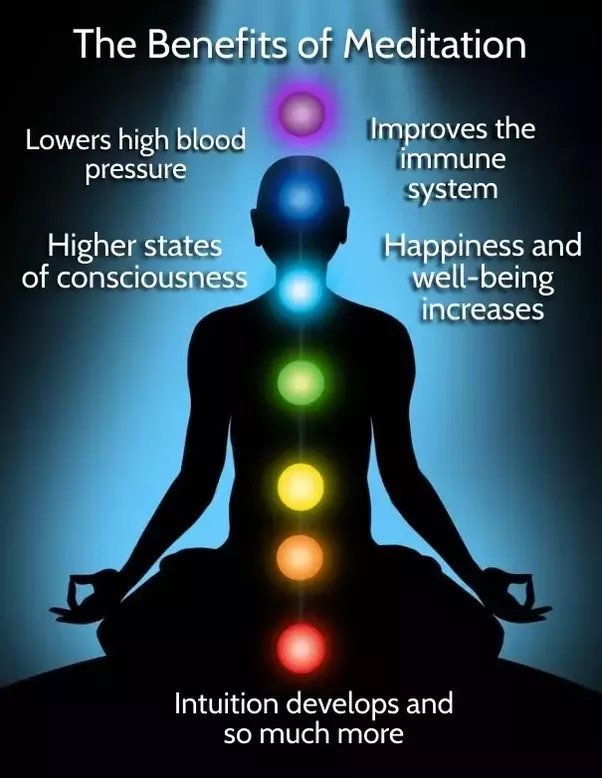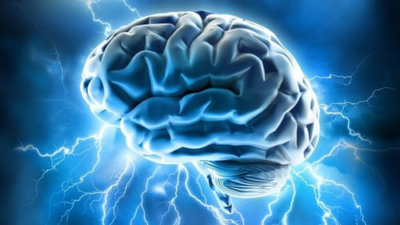No products in the cart.
Tibetan monks meditate for hours at a time each week. Their devotion to their religious traditions makes them experts in meditation.
It turns out that those experts have a lot to teach us about how strong awareness affects the mind.
Meditation and meditation create an ever-increasing state of alertness and focused attention. Various studies show practice can help relieve stress – as well as control anxiety, reduce inflammation, and improve memory and attention, getting started. Such amazing results have many doctors, all professionals, who decide to meditate as they would prescribe medication to reduce stress or high blood pressure. But it is still unclear how meditation offers so many health benefits.
That is why Bin He, a neuroengineer at Carnegie Mellon  University, decided to look at the brains of Tibetan monks. In a previous study, He and his colleagues found that people with meditation experience were better able to control a computer cursor with their minds than those who did not. As Tibetan monks spend the rest of their lives practicing meditation, he was curious as to whether there might be a significant difference in brain function that could give clues as to how meditation leads to many beneficial results.
University, decided to look at the brains of Tibetan monks. In a previous study, He and his colleagues found that people with meditation experience were better able to control a computer cursor with their minds than those who did not. As Tibetan monks spend the rest of their lives practicing meditation, he was curious as to whether there might be a significant difference in brain function that could give clues as to how meditation leads to many beneficial results.
“We went to Tibet and measured the activity in the monastic brain, on average, 15 years of meditation experience – between five and 35 years,” he said. “We then compared those results with indigenous Tibetan people who had never considered it before.”
Using electroencephalography (EEG), a series of electrodes placed on the skin to measure brain activity, He and his colleagues found that long-term, effective meditation practice reduces activity in the automatic network. This is the brain network that is associated with the brain at rest – simply allowing your brain to wander aimlessly – and includes areas of the brain such as the medial prefrontal cortex and the posterior cingulate cortex. In addition, the longer the monk trained, the more the work detected by researchers.
“It seems that the longer you meditate, the better off your mind will be,” He said. “You don’t have to spend a lot of energy when you relax and you can find yourself more relaxed.”
He suggests that practicing meditation helps to “improve” the way the brain uses resources. Pioneer neuropsychologist Michael Posner of the University of Oregon, who first described how brain systems work, says that it makes sense. His own work, by Yi-Yuan Tang, has shown different mutations in white matter, or nerve fibers that allow different regions of the brain to communicate effectively, around the anterior cingulate, the part of the brain most involved in control. attention, through the practice of meditation. Using diffusion tensor imaging, a special type of neuroimaging thinking technique, Posner and colleagues found elevated levels of myelin, sometimes called “brain insulation,” after just a few weeks of normal meditation practice – and that increased divisions help to improve communication by alternative approvals. brain regions communicate faster and more effectively.
“This is a huge area of attention to the brain – and we can see these changes after two to four weeks of exercise,” he said. “Those changes are linked to improved attention in various professions. And since the anterior cingulate has a lot to do with the limbic system, or nervous system, it helps us understand why meditation can help improve mood and reduce anxiety, too.

Such results are promising especially considering that participants in Posner’s study did not have to join the order of the Tibetan monks to receive various benefits. Participants progressed in the task of measuring attention and problem solving within five days. They also show a decrease in cortisol, a hormone commonly used to measure a person’s stress level, Posner said. Improved cognitive skills and low levels of stress are certainly not a matter of sneezing.
Richard Davidson, founder of the Center for Healthy Minds at the University of Wisconsin-Madison, says he is not surprised that so many neuroscience studies specify neural pathways under the beneficial effects of meditation. He says, taken together, there is strong evidence that regular, consistent meditation practice offers many direct benefits to the brain – and, increasingly, to your mental and emotional well-being. That’s why you shouldn’t be surprised if your primary care provider starts outlining strategies for your next annual exam.
With so few studies supporting the idea that meditation is beneficial for your brain and body, what kind of exercise would provide these benefits if you could not take the same type of routine as your regular Tibetan monk? There is still a lot of research to be done to understand the type and amount of practice required for the outcome – and it may vary from person to person. And with so many ways to do that – from workshops to smart phone apps – Davidson says the best kind of meditation is the one you might stick to.
“Think of it as a kind of personal hygiene – almost like brushing your teeth,” he said. “People did not change their teeth by brushing their teeth twice a day. It is a learned skill. Your brain is just as precious as your teeth. Therefore, it is important to give yourself time to learn to stick to it and to stick to it. ”
Meditation and brain research has been going on slowly for several years now, with new studies coming out almost every week to show the new benefits of meditation. Or, rather, some old advantages now confirmed by fMRI or EEG. The practice seems to have an astonishing variety of emotional benefits – from a change in gray matter volume to reduced activity in “my” brain centers to improved communication between brain regions. Below are some of the most exciting lessons that will come out of the last few years and show that meditation produces measurable changes in our most important organ. Skeptics, of course, may wonder what a few brain changes are if the psychological effects are not shown simultaneously? Fortunately, there is good evidence for those of them, with research reporting that meditation helps to reduce our levels of anxiety and depression, and improves attention, concentration, and overall mental health.
Meditation Helps Preserve the Aging Brain
A study from UCLA found that long-term meditators had a better stored brain than non-thinkers as they grew older. Participants who meditated on an average of 20 years had a volume of gray matter across the brain – although older thinkers still had a decrease in volume compared to younger thinkers, it was not declared as non-thinkers. “We were expecting small and unique results from some of the regions associated with meditation,” said study author Florian Kurth. “Instead, what we saw was actually the result of widespread meditation that covered regions across the brain.”
Meditation Reduces Activity in the Brain’s “Me Center”

One of the most interesting studies in the last few years, conducted at Yale University, found that mindfulness reduces activity in the automatic mode network (DMN), the brain network responsible for mental wandering and self-reflection thoughts – a.k.a., “monkey mind.” DMN is “open” or effective when we think nothing special, when our minds wander from thought to imagination. meditation, with its silent effect on DMN, seems to do just that.
Just a Few Days of Training Improves Concentration and Attention

Having concentration problems is not just a child’s thing – it affects millions of adults too, with a diagnosis of ADD or not. Interestingly but not surprisingly one of the main benefits of meditation is that it improves attention and concentration: Some recent research has found that just a few weeks of meditation training help people focus and memory during the GRE speaking phase. In fact, the increase in points was equivalent to 16 points, which is not a sneeze. Since a strong focus (on an object, idea, or task) is one of the main purposes of meditation, it is not surprising that meditation should aid people’s cognitive skills in the workplace, and – but it is good for science to prove it. . And everyone can use a little extra help on standard tests.
Meditation Reduces Anxiety — and Social Anxiety
Many people are beginning to reflect on the benefits of reducing stress, and there is plenty of good evidence to support that claim. There is a new type of meditation, mentioned earlier, called Mindfulness-Based Stress Reduction (MBSR), developed by Jon Kabat-Zinn at the University of Massachusetts’ Center for Mindfulness (now available nationwide), which aims to reduce stress, both physical and mental. Studies have shown its benefits in reducing anxiety, even years after the first eight-week study. Research has also shown that contemplative meditation, in contrast to mindfulness alone, can reduce anxiety – and that these changes seem to link to brain regions that are associated with those thoughts of self-consciousness (“I-centered”). Psychotherapy has also been shown to help people with social anxiety: the Stanford University team found that MBSR brought about changes in the brain areas involved in attention, as well as relief from symptoms of social anxiety.
Meditation Can Help with Addiction
A growing number of studies have shown that, given its effects on self-control areas of the brain, meditation can be very effective in helping people recover from a variety of addictions. One study, for example, included psychological training against the American Lung Association’s freedom from smoking program (FFS), and found that people who learned to think were more likely to quit smoking at the end of training, and after 17 weeks. -upper, than in conventional medicine. This may be because meditation helps people “reduce” the craving for cravings, so one should not always lead to another, but rather fully hear and release the “wave” of desire, until it passes. Some studies have found that psychotherapy, mind-altering therapy (MBCT), and mind-boggling prevention (MBRP) can be helpful in treating other forms of addiction.
Short Meditation Breaks Can Help Kids in School
In brain development, meditation has more or less the promise we have to adults. There has been a growing interest from teachers and researchers in bringing meditation and yoga to school children, who are experiencing general stress within the school, and often more stress and trauma outside of school. Some schools have begun to use meditation in their daily routines, and with good results: One district in San Francisco launched a two-day meditation program in some of its high-risk schools – and saw a decrease in suspensions, as well as GPAs and an increase in students. Research has confirmed the psychological and emotional benefits of school-age meditation, but much of the work will probably need to be done before it can be widely accepted.

Meditation is not a cure-all, but there is certainly plenty of evidence that it can do good for those who practice it. Everyone from Anderson Cooper and co-host Tim Ryan to companies like Google and Apple and Target incorporated meditation into their plans. And its benefits seem to be felt after a short period of practice. Some researchers have suggested that meditation can lead to negative consequences under certain conditions (known as “dark nights”), but for many people – especially if you have a good teacher – meditation is beneficial, rather than harmful. You really should be shooting: If you have a few minutes in the morning or evening (or both), instead of turning on your phone or surfing the internet, see what happens when you try to calm your mind, or at least pay attention and let go of it without reacting to it. If the research is right, just a few minutes of meditation can make a big difference.
Other articles on meditation:






